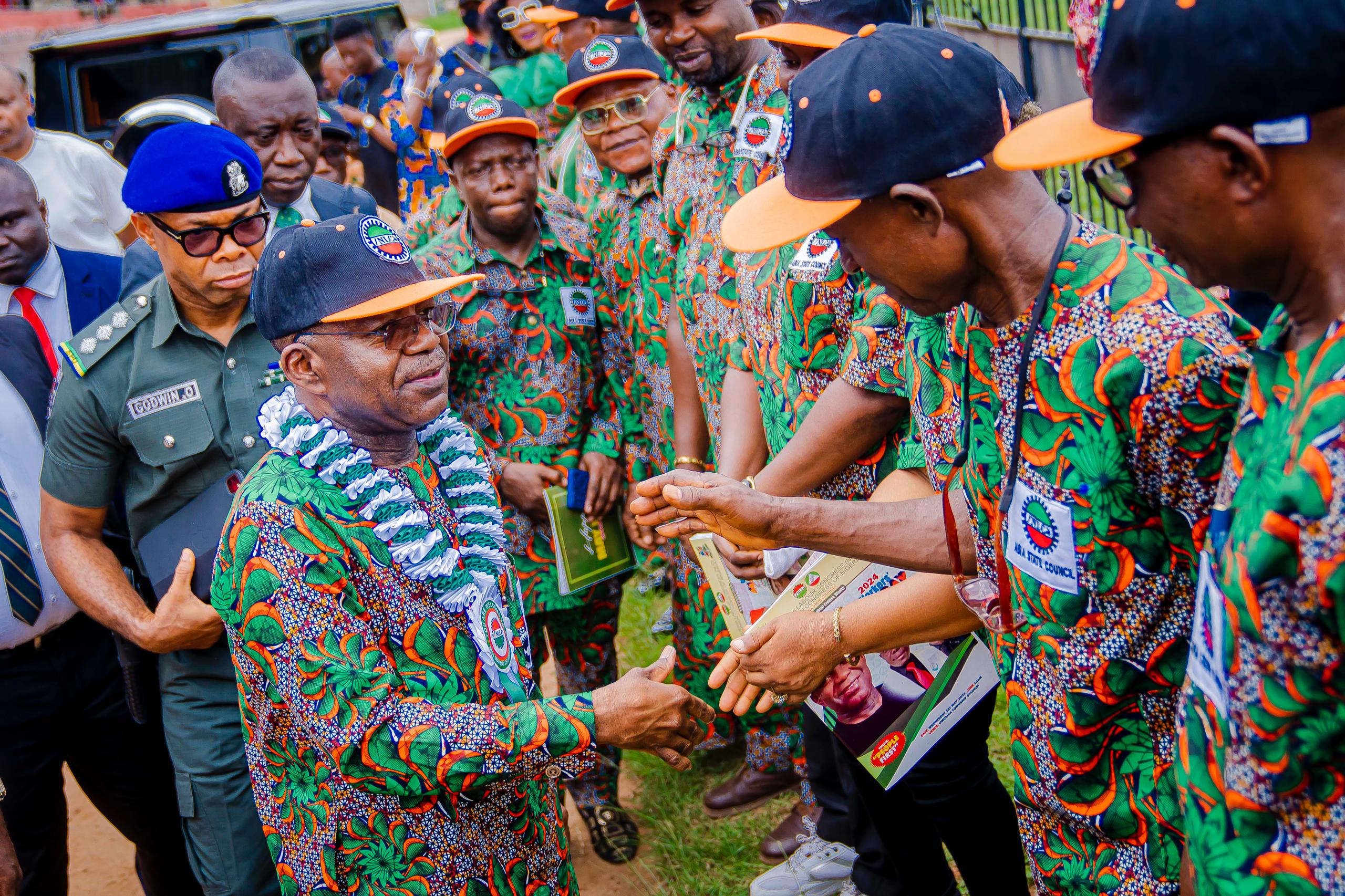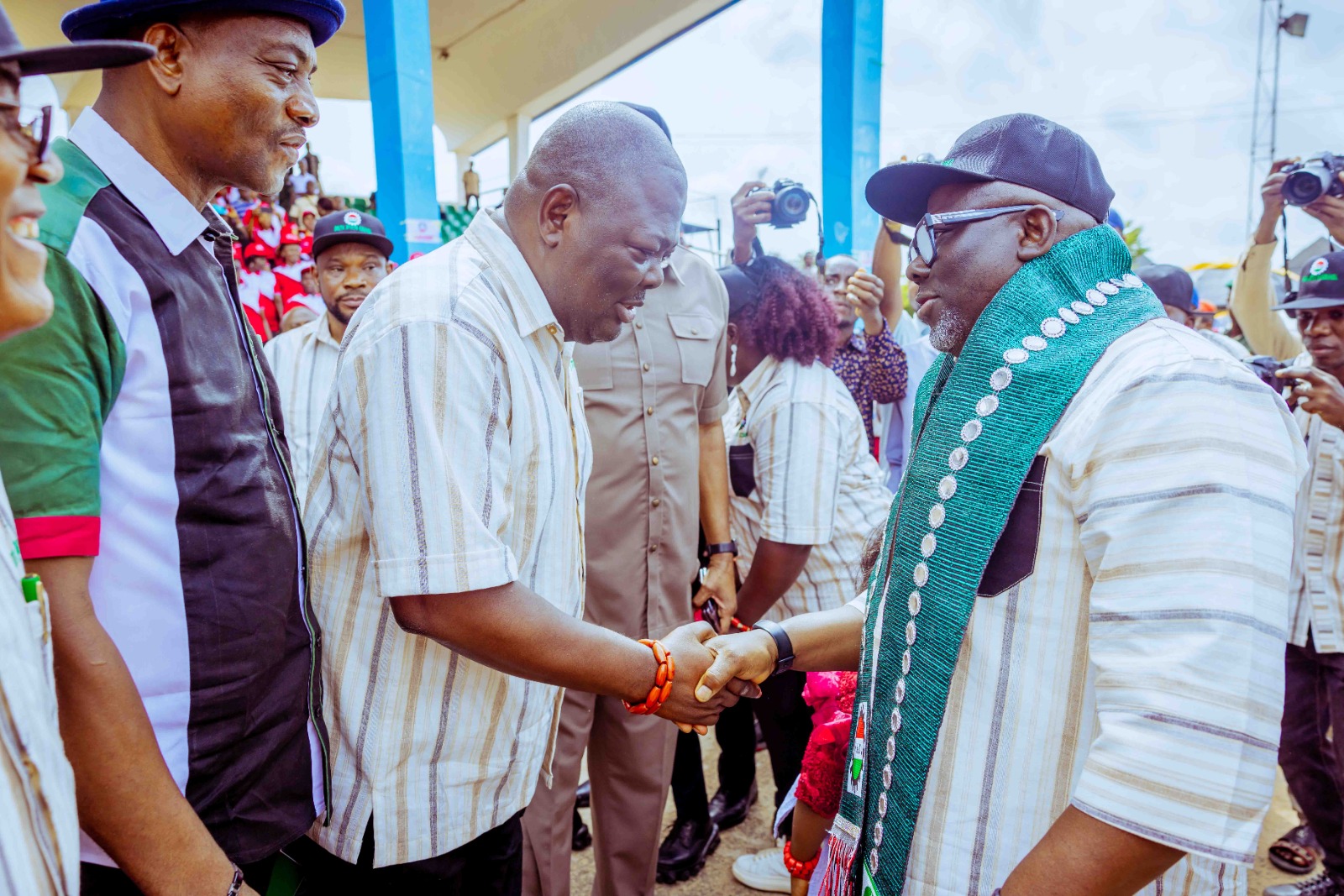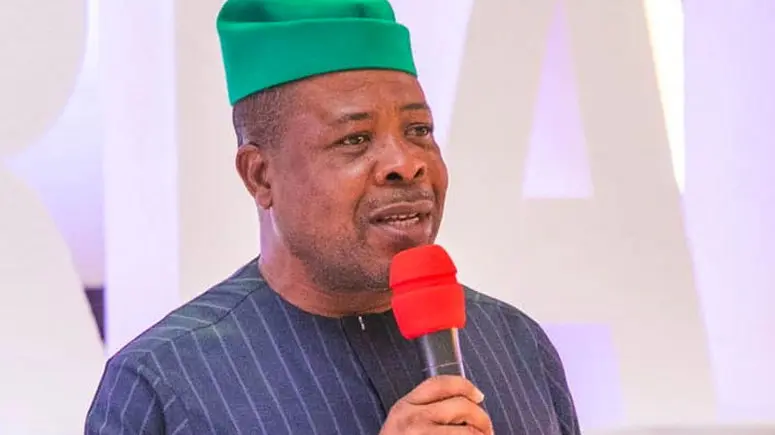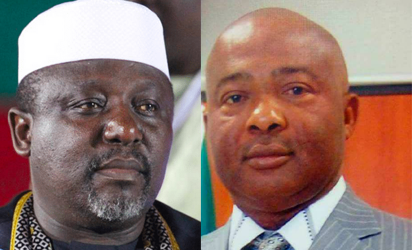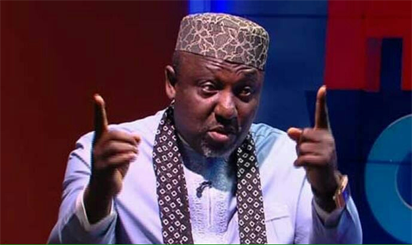THE MYSTERY OF THE 388 POLLING UNITS
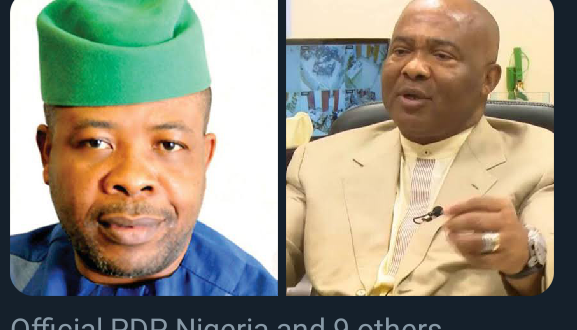
By Collins Ughalaa
On Saturday, March 9, 2019, the people of Imo State joined citizens in other states of the federation to perform one of their civic responsibilities. They trooped out in their numbers to vote for their preferred governorship candidate. This voting ritual is done in Nigeria once in four years, and the outcome of the ritual determines almost everything that happens in the various states. Aware of the magnitude of the choice before them, Imo people, including the aged, braved the odds and stood in the sun for hours just for an opportunity to make their choice. The election as witnessed in the state was one of the most cantankerous since 1999, with about 70 governorship candidates. It was one election that not only divided the state along clannish and religious lines, it also divided almost all the political parties in the state. It was one election that saw the tearing of election result sheets in public glare and before television viewers nation-wide, reminiscent of the Orubebe episode of 2015 in Abuja.
In the midst of the raging tide of confusion and division that accompanied the election, Imo people courageously made their choice. But by the way elections are configured in Nigeria, especially with the Secret Ballot System, no one can tell what choice anyone makes. With the system open to all kinds of manipulations, no one can rest assured that in the end the choice he secretly made on the ballot paper would be respected. Everyone awaits to hear what the umpire declares. That is our fate in this country called Nigeria. And as long as calls for transparency in our electoral system remain unheeded, the uncertainty and utter dependence on the final declaration of the Independent National Electoral Commission (INEC) will continue to pervade our political culture and may determine the final outcome.
The outcome of the governorship election in Imo State on March 9, 2019, was declared on Sunday, March 10, 2019, by INEC with Rt. Hon. Emeka Ihedioha, the governorship candidate of the People’s Democratic Party (PDP) as the winner. The Returning Officer for INEC and the Vice Chancellor of Michael Okpara University of Agriculture, Umudike, Umuahia, Abia State, Prof. Francis Otonta, announcing the final results at the Imo State Governorship Election Collation Centre at the INEC office in Owerri, the state capital, said that Ihedioha, a former Deputy Speaker of the House of Representatives, polled a total 273,404 votes to emerge the Governor of the state. The governorship candidate of the Action Alliance (AA), Ugwumba Uche Nwosu, was awarded the second position, scoring 190,364 votes. The governorship candidate of the All Progressives Grand Alliance (APGA) and former two-term Senator representing Okigwe Zone, Ifeanyi Araraume, got 114,676 votes, coming third on the chart. The governorship candidate of the All Progressives Congress (APC) and now Governor of Imo State, Senator Hope Uzodinma, who had represented Imo West Senatorial District for two terms was also awarded 96,458 votes.
It is common knowledge that the electoral process in Nigeria does not end with the declaration of a winner by INEC. Any contender in the election who is aggrieved at the result declared by the electoral umpire is backed the laws to present his case before the court. A candidate who approaches the court for redress is rather applauded for toeing that path instead of taking the laws into his own hands. He is at liberty to expend the whole legal stretch, leading up to the Supreme Court, which is the final arbiter. Following this time-tested culture, the governorship candidate of the APC, Senator Hope Uzodinma, approached the Governorship Election Tribunal and claimed that his votes from 388 polling units across the state, amounting to 213,695 votes, were unlawfully excluded from the Form EC8B. The Electoral Act provides that results generated from the polling units must be entered in the Form EC8A, and that once entered into this form becomes impossible to cancel at the ward level because it has been accepted. From the Form EC8A the results from the polling units are accepted and recorded into the Form EC8B. Voting takes place at the Polling Unit, not Ward. Therefore, wards on their own do not generate election results.
Armed with this knowledge, and knowing that he had garnered 213,695 votes from across the state, Uzodinma told the Tribunal he would have become Governor had the 213,695 votes been added to the 96,458 votes already declared by INEC on March 10, 2019. When added, Uzodinma would have polled 310,153 votes, against 273,404 votes scored by Rt. Hon. Emeka Ihedioha. But as the court would please, Uzodinma lost his case at the Tribunal. Undaunted, he went up to the Court of Appeal where he presented his case once more for another look. He did not get a win at the appellate court. But one significant thing happened at the Court of Appeal: Uzodinma got a minority judgement of 4:1 that declared him winner of the governorship election.
Delivering his minority judgement, Justice Fredrick Oho of the Court of Appeal told Senator Hope Uzodinma: “All your reliefs are hereby granted and I hereby declare you the duly elected Governor of Imo State. And I put the cost of the action against the 1st (Ihedioha) and 2nd (PDP) respondents at N1m.”
The minority judgement that declared Uzodinma “the duly elected Governor of Imo State” was the turning point in the 2019 governorship election legal scrimmage. It opened a window of possibility that his case could find favour with the Supreme Court. At the Supreme Court, Uzodinma insisted that he had garnered 213,695 votes from the 388 polling units and that they were wrongfully excluded. He further claimed that the former Governor was returned duly elected based on a wrongful computation of results from the 2,883 polling units. His case found merit before the Supreme Court. Delivering judgement on the matter on Tuesday, January 14, 2020, therefore, Justice Motonmori Olatokunbo Kekere-Ekun of the Supreme Court held that “there is merit in this appeal” and that “The appeal is allowed”. The Court also set aside the judgement of the Court of Appeal, saying: “The judgement of the lower court affirming the judgement of the Governorship Election Tribunal is hereby set aside”.
In its wisdom, the Supreme Court “ordered that votes due to the Appellants (i.e. Sen. Hope Uzodinma and All Progressives Congress) from the 388 polling units were wrongly excluded from the score ascribed to them”. The Court also “ordered that the Appellants’ votes from the 388 polling units (213,695) unlawfully excluded from the Appellants’ score shall be added to the results declared by the 3rd respondents”. With the new result from the new computation, the Supreme Court “declared that the 1st appellant, Senator Hope Uzodinma, polled a majority of lawful votes cast at the Governorship Election held in Imo State on 9th March, 2019 and satisfied the mandatory constitutional threshold and spread across the state”. The Supreme Court further “declared that the 1st appellant, Senator Hope Uzodinma, is the winner of the Governorship election of Imo State held on 9th March, 2019” and that “The Certificate of Return issued to the 1st respondent, Rt. Hon. Emeka Ihedioha, is hereby withdrawn”. Following the ordered withdrawal of the Certificate of Return from Ihedioha, the Supreme Court “ordered that a Certificate of Return shall be issued to the 1st appellant, Senator Hope Uzodinma, forthwith and he should be sworn in as the Governor of Imo State immediately”.
Senator Hope Uzodinma was since Wednesday, January 15, 2020, sworn-in as the Governor of Imo State. But the People’s Democratic Party (PDP) and the former Governor continually raised questions on the validity of the judgement of the Supreme Court. They have since approached the Supreme Court for a review of the judgement delivered on Tuesday, January 14, 2020. One of the questions raised in the Supreme Court judgement bothers on the allegation that Uzodinma by virtue of the judgement of the Supreme Court in the appeal brought before it between Ugwumba Uche Nwosu and the Action Peoples Party (APP), where the Supreme Court upheld that Chief Nwosu “knowingly” allowed himself to be nominated by two political parties.
Ihedioha had filed a Motion on Notice at the Supreme Court on the 10th day of January, 2020, asking the Supreme Court to strike out the appeal brought before it by Senator Uzodinma on the ground that the Supreme Court had in its judgement of December 20, 2019, held that the nomination of Uche Nwosu was invalid, null and void and in violation of section 37 of the Electoral Act, 2010 (as amended).
In response to the poser presented before the Supreme Court, it answered that “the validity of the 1st appellant’s (Senator Hope Uzodinma’s) nomination as a candidate of the 2nd appellant (APC) for the governorship election in Imo State is a fresh issue raised for the first time in this court without leave. Furthermore, it is a pre-election matter, in respect of which this court lacks original jurisdiction to determine same within a post-election appeal. The application therefore falls and is accordingly dismissed”. In giving its answer, the Supreme Court noted that the issue brought before it by Senator Hope Uzodinma and the APC, which began from the Governorship Election Tribunal and progressed to the Court of Appeal, “was on the exclusion of votes scored by the appellants in 388 polling units from ward collection results (Form EC8B) which led to a wrong declaration of the 1st respondent as the winner of the election. The issue of the 1st applicant’s nomination did not arise”.
On the question of the validity of the 213,695 votes from the 388 polling units, the Supreme Court noted that Rt. Hon Emeka Ihedioha, the PDP and INEC denied excluding such results. The Court particularly noted that “the third respondent (INEC) specifically pleaded in paragraph 14 of its reply to the petition that the authentic results of the election would be tendered at the trial”. Noting that INEC did not call any witness to testify on the evidence submitted by Senator Uzodinma in the Form EC8 series, and did not tender any documents, the Supreme Court added that “in the instant case, the contention was that at the ward collation stage, votes scored by the appellants were unlawfully excluded. The documents required to prove this allegation would be the Form EC8A series, which is the primary evidence of an election i.e., the ward collation results”.
…To be continued.
Collins Ughalaa could be reached via email: ughalaacollins@gmail.com; or via telephone: 07066222944.


